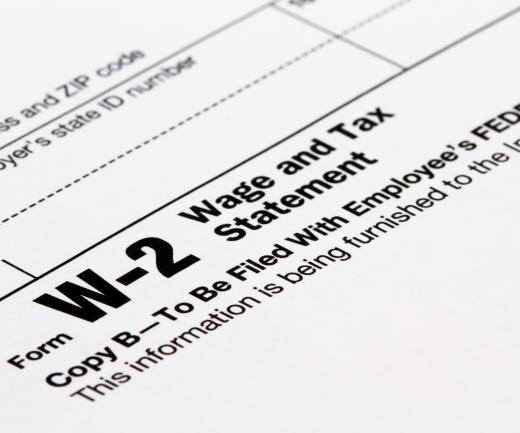The Social Security tax is a payroll deduction that was started by the United States Government in the 1930s. This tax is paid by most working people and their employers, and also includes self-employed individuals. Money collected through Social Security is used to help American citizens who are no longer able to work due to a disability, the death of a parent, or reaching retirement age. It also goes towards a system known as Medicare, which offers health benefits to qualifying individuals. The tax rate may change from year to year, depending on the need of beneficiaries, and the tax is deducted by the employer from an employee's paycheck each pay period.
Changing Rate

When individuals are employed, taxes are paid by both the employee and employer, with each party paying half of the tax, while self-employed citizens are required to pay the full amount. The actual rate amount is determined by the current government law regarding Social Security, and the rate may change according to how much monetary assistance is needed to continue funding the Social Security program. When the tax was originally created, the rate was 2%; that amount increased over time, and in the 1990s the rate was increased to 6.2%. This rate remained steady until 2011, when it was decreased to 4.2%.

It is possible that an employee may have too much money deducted from a paycheck towards Social Security. In this situation, the employee may file for a refund via his or her tax return. When an employer pays too much towards the fund, however, no refund can be made, so it is important for employers to pay the correct amount upfront.
Uses and Beneficiaries

The purpose of the Social Security tax is to ensure that every American citizen will have some type of income, even if he or she becomes disabled or too old to work, and to fund the Medicare system. All monies collected through the Social Security tax are placed into a fund where they distributed accordingly. Beneficiaries receive their share of monetary assistance in the form of a check, which can be mailed or deposited automatically into a bank account.

Several different groups of individuals benefit from this fund. Typically, qualifying conditions include situations in which someone becomes disabled, in which case he or she will receive a monthly income from the Social Security tax. If a parent with children under the age of 18 dies, each child will receive a monthly income known as "survivor benefits" until his or her 18th birthday. Retirees also benefit from the social security tax: after reaching retirement age, an individual should receive a monthly income from the Social Security tax.
Medicare

In 1965, this government tax was increased to pay for an expansion known as Medicare. This new program was established to provide healthcare benefits to US citizens who are 65 years of age or older or meet other requirements before that age. To qualify for Medicare, a citizen must typically be 65 years old or older and a legal citizen or permanent resident of the US; however, it is possible to qualify before the age of 65. People with certain disabilities, most of whom already receive Social Security, or those with end-stage renal disease may become Medicare beneficiaries at a younger age.
Created From Necessity
Before the Great Depression, the working class in America found themselves with several financial difficulties; at that time, if a person was not able to work, he had no way of supporting himself or his family. This was true for the elderly, as well as those who were sick or injured. Government health insurance for the elderly did not exist at that time, and without income, most individuals would not be able to pay for medical care or even the daily expenses of living for themselves or their families. If for any reason a worker had not been able to save money on his own throughout his life, once he became too old to work, his income would end. This would all change in 1935, when President Franklin D. Roosevelt signed the Social Security Tax Act into law.
